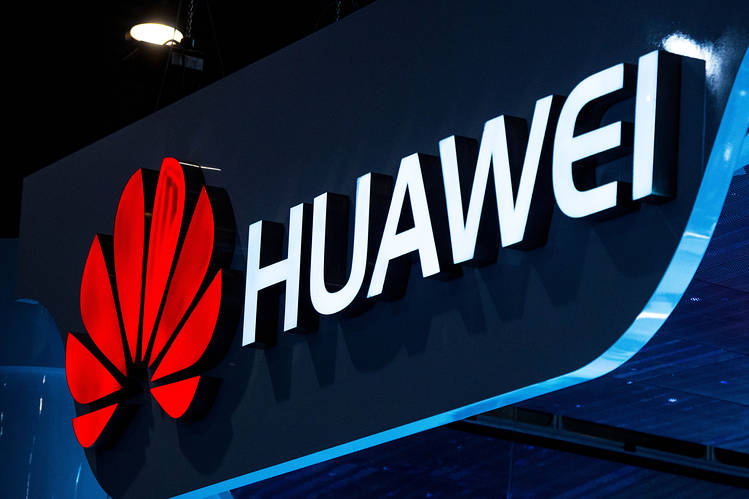Oladimeji Olamide Peters is the Acting MD/CEO of FirstCentral Credit Bureau, one of the three Credit Bureaus in Nigeria and the current Chairman of the Credit Bureau Association of Nigeria. In this interview with MSME Africa online; he provided enlightenment on what credit reporting and credit scores are all about; the functions of the credit bureaus and the need for Nigerians, including MSMEs, to embrace them.
Please give a brief background on what Credit Reporting is about
Credit Reporting is a relatively new idea to many Nigerians but it is not a new concept in the Banking and Financial sector. It has been an operative phenomenon for several years and has affected access to credit by Nigerians in ways they are not fully aware of.
Credit Reporting is the act of providing information about your credit activities and current credit status. This information is used by lenders to guide them in their loan decisions – whether or not to give a loan, what amount can be given and at what interest rate, what collateral will be used as a loan security etc.
Credit Reporting is not limited to transactions with banks and other financial institutions. It also involves transactions with non – financial institutions as long as some form of credit is involved.
To illustrate, if a person takes 10,000 bags of cement from Dangote, it will be reported as a loan against that person’s name. The financial part of the credit report contains details like the opening balance, current balance, installments, repayment frequencies and how a person has performed over time. This will help in coming up with an assessment of a person and their credit-worthiness.
Credit Reporting is made possible with the generation of what is known as a Credit Report. This is a document provided by the Credit Bureau. There are three CBN – licensed Credit Bureaus in Nigeria – FirstCentral Credit Bureau, CRC Credit Bureau and CreditRegistry.
The activities of Credit bureaus entail several matters such as checking the payment pattern of the individual seeking the loan from their previous loans. A credit report can reflect the payment pattern of a person over a period of their loan tenure; let’s say 24 months for instance. If a person defaulted or made late payments for 20 out of the 24 months, that is a red flag already.
Credit Bureaus also look at KYC issues like address changes, phone number changes, employment history changes and other parameters; all of these also help lenders to know, identify and assess an individual better and take a decision.
Furthermore, a credit report can reveal if a person is ”saturated”, meaning that they are servicing so many loans and it may not be advisable to give such a person more loans.
This covers mostly the basics of the Credit Reporting.
What is Credit Scoring?
Credit Bureaus also have what is called the Credit Score which is a 3-digit statistical probability that expresses the customer’s capability to perform or default. A low score indicates high risk and a high score indicates low risk. There are also medium-risk levels in-between and this score helps lenders decide whether to engage a person or not.
These scores are generated by using several matrixes, some of which are repayment history, length of credit history, amount overdue etc. Credit Scoring can also be done on a commercial level as such a business owner can obtain a credit score to see how the business performs vis-a-vis the directors’ loan performance.
How does Credit Reporting/Scores affect the ability of MSMEs to obtain loans?
If you ask any MSME operator what their major challenges are, financing will always be first on the priority list. It is the number one problem of people in that sector. Businesses need money for almost everything.
For financial institutions to give loans/credit facilities to MSMEs, they would first take a look at their financial behavior, performance and credit history. This will help them make an informed decision. There are cases where people have negative balances on their accounts without knowing. It could just be a small bank charge – SMS alert charge and so on, which has accumulated interest over time. About 12-14% of the loans in Nigeria are from overdrafts and those overdrafts will continue to be a sizeable chunk of the credit portfolio and this information will inevitably be reflected in a credit report. The Credit Bureaus would report this as a debt, though the credit bureaus are neutral in the loan decisions carried out by financial institutions
This is why it is advisable for MSMEs to request for a credit report to run a check on them and put their records in order before approaching a financial institution for credits. This is the reason why the three Credit Bureaus offer one free credit report every year, which can serve as “reputational collateral”, in order words, to show that a person’s loan performance is good.
What initiatives has CBN done to help the Credit Bureau space?
CBN has been really supportive as the regulator of the Credit Bureaus. They have come up with several initiatives involving advocacy and sensitization, providing regulatory frameworks and setting up meetings with different stakeholders to promote the cause of the Nigerian credit bureau industry. An example of this is the National Collateral Registry and Credit Reporting Awareness Campaign carried out in collaboration with the International Finance Corporation in 2016.
How well have other stakeholders embraced/adopted Credit Bureaus?
The awareness is building up gradually even though some players especially Fintechs do not make use of Credit Bureaus. Hopefully, this will change very soon. Currently, there is a guideline being put together by the Association of Money Lenders to ensure things are done the right way. They intend on presenting this to the CBN. Things are changing gradually and more regulations and sanctions are coming into place to further sanitize the Nigerian Financial Sector.
What is your take on the Influx of Digital Lending?
With the advent of BVN and other initiatives by CBN, there has been an influx of more Digital Lenders which has helped in our quest for more financial inclusion.
The year 2019 was also a major turnaround as noticeable trends were recorded. The sector rapidly moved away from the traditional ways of loan procurements to more digitalized ways especially with the fintechs. A lot of fintechs and digital lending platforms came on board and they deployed initiatives like social lending, psychometrics and other measures.
If not for COVID-19, this year would have been equally remarkable. We are hopeful that we will also witness a lot more development in that space in 2021.
Has the advent of Fintechs been a blessing to Credit Bureau?
Definitely, it has. Their activities promote financial inclusion which helps in capturing the data of more people from the different classes of the society. We are equally willing to partner with them and accommodate some concessions to them to ensure we can work together.
Who pays for Credit Bureau Services – lender or borrower?
The lenders pay but somehow, they find a way of factoring that cost into the loan package in form of administrative charges.
However, in situations where they cannot charge the customer because the loan didn’t go through due to the customer’s negative credit report, we always work out some arrangements with them to mitigate the impact of those costs.
What is CBAN doing to create awareness for its initiatives and offerings?
We have done some level of awareness campaigns, deploying media in strategic places. We have had a number of conferences, seminars, roadshows and other programs. We have been on radio and television. Going forward, we plan to do more in the media, organize more enlightenment sessions and partner with other organizations like MSME Africa Online. We have also been trying to redirect our focus to other sectors. For the first few years since CBAN was formed, we were focused mainly on financial institutions and that seems to have yielded some results as CBN has mandated all commercial banks and microfinance banks to make use of at least two Credit Bureaus. In 2018, we focused on the non-financial institutions who offer credits not necessarily in cash such as Telecommunication companies, FCMGs, Electricity Distribution companies etc. In 2019, we decided to move on to the end users (MSMEs and other consumers) and provide them with the required sensitization and enlightenment. That has been our focus since 2019. We hope to spend some time engaging the MSMEs as they are vital players in the Nigeria Economy. We intend on carrying out several interactive forums with the use of virtual platforms as this has a wider reach in the face of the current pandemic.
What are the other benefits of credit reports to business owners and individuals apart from helping in accessing loans?
We hope in the future that a person’s level of financial responsibility and credit history would be factors that determine qualifications for employment, issuance of government contracts, obtaining a grant, getting a scholarship or even political office. It should get to a point where people obtain their credit reports not because they want a loan but because they just want to assess themselves in their bid to be more financially responsible.
Are you playing any part in the Credit Rating Agency being set up by SMEDAN?
It has been brought to my attention but we have not been approached by SMEDAN. It is possible they will still approach us at some point of the process. At this junction, it is important to note that although the terms Credit Rating and Credit Scoring may be used interchangeably on occasions, there is a difference between the two concepts.
A Credit Rating, which is often stated as a letter grade, expresses the credit-worthiness of a business or government. In contrast, Credit Scores, which is usually conveyed as a number, is used mostly for individual consumers. Furthermore, Credit Rating is an assessment of the credit risk of a potential debtor with the intent to forecast their ability to pay back the debt and the probability of the debtor defaulting. This is carried out by a Credit Rating agency such as Moody’s, Fitch and Augusto & Co that carry out their assessment with qualitative and quantitative information on the potential debtor as well as non – public information acquired by the agency’s analysts.
Credit Scores are a subset of Credit Rating, a numerical assessment of an individual’s credit-worthiness which is carried out by a Credit Bureau. Thus, we welcome the opportunity of CBAN working with SMEDAN as they begin their Credit Rating initiative as well as other Credit Rating agencies in the country.
What are your parting words?
I encourage everyone to get their free credit report from any of the three Credit Bureaus. You can do so by visiting any of the websites stated below:
- FirstCentral Credit Bureau – www.firstcentralcreditbureau.com
- CRC Credit Bureau – www.crccreditbureau.com
- CreditRegistry – www.creditregistry.ng
For more information about the Credit Bureau Association of Nigeria, please feel free to send an email to info@cban.ng or visit www.cban.ng










Comment: For establishment of school
Name Abubakar adamu bvn22264053086 ACC 2012903735 occupation farmer qualifications Dandore PRI SCH high Islamic studies jos rimi branch n.c.e national institute Kaduna